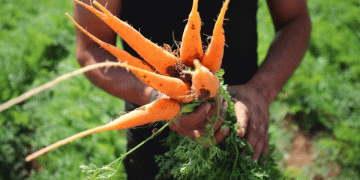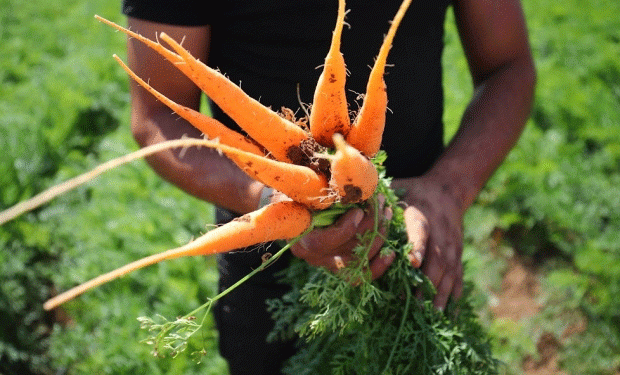From May 28 to June 3, 2025, inspectors from the Rosselkhoznadzor (Russian Federal Service for Veterinary and Phytosanitary Surveillance) in the Volgograd region conducted quality and safety checks on 860 tons of carrots destined for export to Kazakhstan. The vegetables underwent strict phytosanitary controls to comply with Kazakhstan’s import regulations, and the necessary phytosanitary certificates were issued before shipment.
Growing Demand for Russian Vegetables in Central Asia
Kazakhstan remains a key trade partner for Russian agricultural exports, particularly for fresh produce. According to recent data from Russia’s Ministry of Agriculture, vegetable exports to Central Asia have increased by 12% in 2024-2025, with carrots being one of the most sought-after crops due to their long shelf life and high nutritional value.
Volgograd region, known for its fertile soils and advanced irrigation systems, has become a major supplier of vegetables not only to domestic markets but also to neighboring countries. The successful export of 860 tons of carrots demonstrates the efficiency of regional logistics and compliance with international phytosanitary standards.
Ensuring Quality for Export Markets
Phytosanitary inspections are critical for maintaining export credibility. The Rosselkhoznadzor ensures that all shipments meet the strict requirements of importing countries, reducing the risk of rejections at borders. Kazakhstan, like many nations, enforces rigorous checks to prevent the spread of pests and diseases through agricultural imports.
The recent 860-ton carrot shipment from Volgograd to Kazakhstan underscores the strength of Russia’s agricultural export sector and the importance of adhering to international trade standards. As demand for fresh produce grows in Central Asia, Russian farmers and exporters have a significant opportunity to expand their market presence. Continued investment in logistics, quality control, and certification processes will be key to sustaining this positive trend.
Descri
Title: “Volgograd Exports 860 Tons of Carrots to Kazakhstan: A Boost for Regional Agriculture and Trade”
Description: In late May 2025, Volgograd region successfully exported 860 tons of carrots to Kazakhstan after thorough phytosanitary inspections. This shipment highlights the growing trade opportunities for Russian agricultural producers in Central Asia.
Volgograd Carrot Exports Strengthen Trade Ties with Kazakhstan
From May 28 to June 3, 2025, inspectors from the Rosselkhoznadzor (Russian Federal Service for Veterinary and Phytosanitary Surveillance) in the Volgograd region conducted quality and safety checks on 860 tons of carrots destined for export to Kazakhstan. The vegetables underwent strict phytosanitary controls to comply with Kazakhstan’s import regulations, and the necessary phytosanitary certificates were issued before shipment.
Growing Demand for Russian Vegetables in Central Asia
Kazakhstan remains a key trade partner for Russian agricultural exports, particularly for fresh produce. According to recent data from Russia’s Ministry of Agriculture, vegetable exports to Central Asia have increased by 12% in 2024-2025, with carrots being one of the most sought-after crops due to their long shelf life and high nutritional value.
Volgograd region, known for its fertile soils and advanced irrigation systems, has become a major supplier of vegetables not only to domestic markets but also to neighboring countries. The successful export of 860 tons of carrots demonstrates the efficiency of regional logistics and compliance with international phytosanitary standards.
Ensuring Quality for Export Markets
Phytosanitary inspections are critical for maintaining export credibility. The Rosselkhoznadzor ensures that all shipments meet the strict requirements of importing countries, reducing the risk of rejections at borders. Kazakhstan, like many nations, enforces rigorous checks to prevent the spread of pests and diseases through agricultural imports.
Conclusion
The recent 860-ton carrot shipment from Volgograd to Kazakhstan underscores the strength of Russia’s agricultural export sector and the importance of adhering to international trade standards. As demand for fresh produce grows in Central Asia, Russian farmers and exporters have a significant opportunity to expand their market presence. Continued investment in logistics, quality control, and certification processes will be key to sustaining this positive trend.
Tags:
#Agriculture #Export #Carrots #Volgograd #Kazakhstan #PhytosanitaryControl #Agribusiness #Farmers #Trade #Rosselkhoznadzor #CropExports #AgriculturalEngineering































